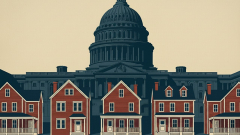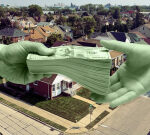A government shutdown doesn’t stop the housing market—but it can definitely slow things down. From delaying closings to shaking buyer confidence, even a short shutdown causes ripple effects that can reach your front door.
When Washington gridlocks, it doesn’t just stay in DC—it filters down to everyday buyers, sellers, and homeowners across the country.
A shutdown begins when Congress fails to pass a funding bill, forcing many federal agencies to partially close. Some essential services continue—air traffic keeps moving—but critical housing programs slow way down or stop completely.
Paperwork piles up. Closings get delayed and buyer confidence takes a hit.
During the 2018–2019 shutdown, existing-home sales dipped from about 5.2 million to under 5 million before rebounding once the government reopened.
Both buyers and sellers can feel the effect of the “shutdown bottleneck.”
Flood insurance is one big way. The National Flood Insurance Program can’t issue new policies during a shutdown, complicating thousands of home sales in flood zones. Lenders do have work-arounds to enable sales to continue, but some of these can put buyers in a risky position.
Government-backed loans like those from the Federal Housing Administration and Veterans Affairs continue but move slower.
Meanwhile, rural housing loans through the USDA often pause entirely. And HUD programs—like rental assistance—keep going, for now, but the longer the shutdown lasts, the more likely it is that landlords could see rent disruptions.
“Rural families face unique challenges in accessing safe, affordable housing and financing,” explains Elayne Weiss, senior policy representative on federal housing issues at the National Association of Realtors®.
“Rural inco





